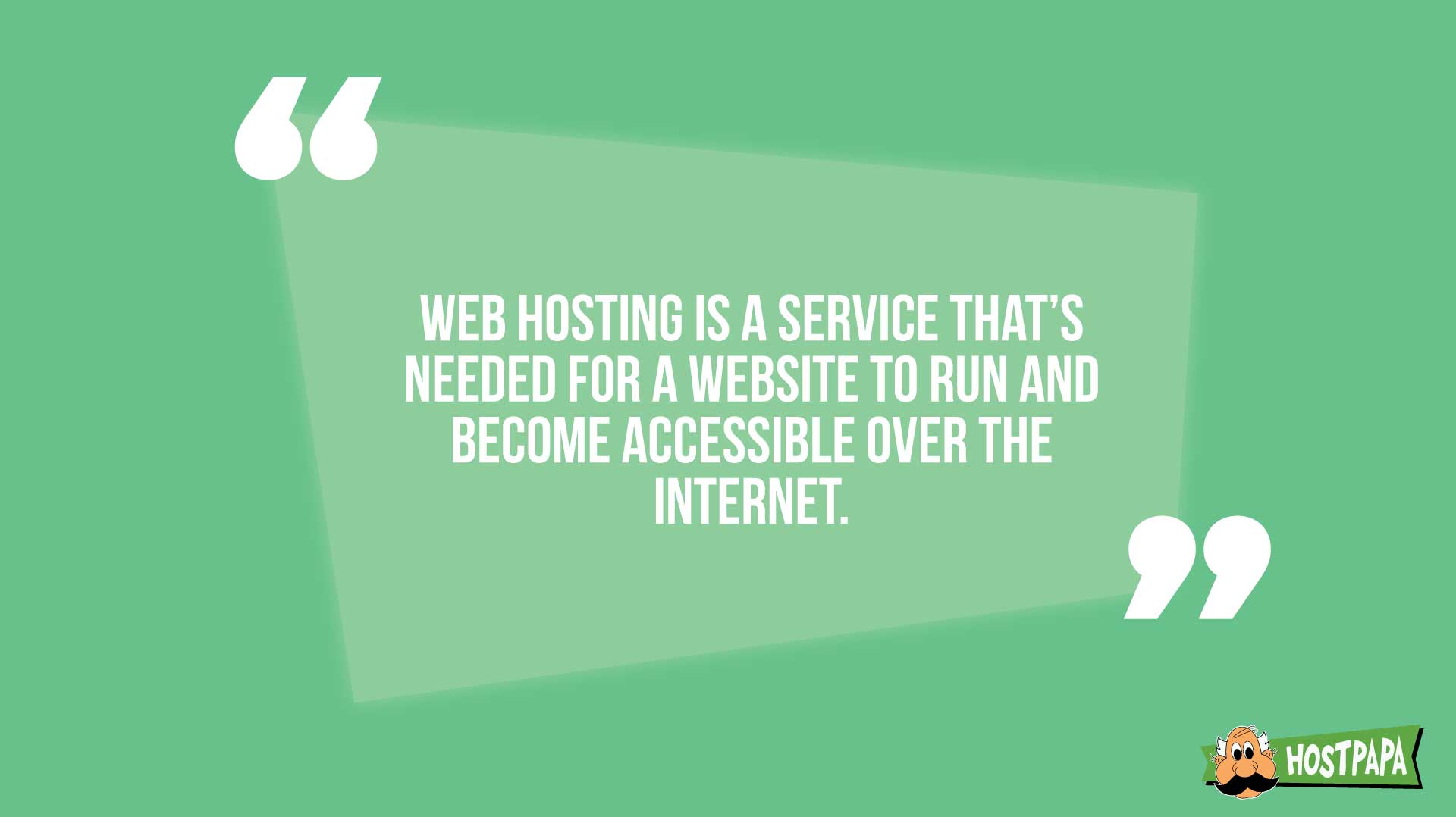Today, more and more people are making their own websites to support their side jobs or create a virtual space for their hobbies.
But many are unfamiliar with the technical jargon that comes with web hosting. One, in particular, creates the most confusion: Web Hosting vs. Domain Registration. What are they, and why do we care?
In this blog post, we’ll get you up to speed with Web Hosting vs. Domain Registration, so you won’t have to look it up again.
- What Is A Domain Name?
- What Is Web Hosting?
- What’s The Difference Between Web Hosting And Domain Registration?
- What Do You Need To Build A Website? Domain Name Or Web Hosting?
- Do You Have To Buy Them Together? Or Can You Buy Them Separately?
- Do You Need Web Hosting If You Have A Domain Name?
- Do You Need A Domain If You Have Web Hosting?
- Can You Move Your Domain Name To A Different Company?
- Can You Move Your Website To Another Web Hosting Company Without Changing Domain?
- Should You Buy Domain And Web Hosting From The Same Company?
What Is A Domain Name?
To better understand the internet, people have created their own language. Just like we use language to communicate, the internet uses friendly names to distinguish one website from another.
The internet is a series of computer networks linked with IP addresses, a series of numbers pointing to a specific server or client online. These IP addresses are hard to remember, so the Domain Name System was created, giving these IP addresses a more memorable name like Google.com. The companies that lease domain names are called domain name registrars.
But that wasn’t enough. The “Google.com” is called a domain name, and “.com” is the domain extension, used as an identifier, sometimes for regional purposes, to show authority and other matters.
The .com domain extension is a top-level domain because it sits at the highest level in the hierarchical Domain Name System. It’s similar to the .org and .net domain names that all fall under the same TLD category.
When creating your website, you’ll get asked if you want to include a domain name with your plan. We do this because HostPapa includes one domain for free.
For the website to go live, you must register a domain name, usually from the web hosting provider or using a domain name registrar. This specialized service helps you register your domain and link it to your third-party hosting provider with the help of nameservers.
What Is Web Hosting?
Web hosting is our article’s second and probably most important chapter. Web Hosting is the space where all of your website’s files are stored, and the company that does this task is often called a Web Host.
A good example that explains web hosting is your house. It’s just what your web hosting provider is, and its address is your website’s URL.
Another type of web hosting is shared web hosting. Most web hosting services have many computers with tremendous processing power, shared across multiple websites. And that’s how the name shared hosting was born.
A typical web hosting service consists of a collection of carefully managed web servers storing your website’s information. You can connect to the hosting platform and manage your site as a paying user. You have the power to make changes whenever you need to, as well as to upgrade the components that make up your site.
A web hosting company will usually provide the backend tools you need to manage your site, but some hosting companies offer more, including:
- Custom tools that you can use to implement advanced features on the fly
- Billing that automatically adjusts based on your usage
- Options for additional storage or websites
- Webmail, and more
What’s The Difference Between Web Hosting And Domain Registration?
The two terms seem complicated, but the differences between web hosting vs. domain registration are pretty easy to understand.
First, your web hosting provider can offer both if you wish. However, you can obtain the domain name from a domain registrar and connect it with your web hosting service later.
As explained in the above chapter, a web host serves your website on the internet. For the website to be visible via your desired URL address, you must purchase a domain name, like “yoursite.com”.
Additionally, web hosting companies typically offer services beyond just hosting your website. Access to an FTP service and email accounts linked to your domain name are two common supplemental offerings.
What Do You Need To Build A Website? Domain Name Or Web Hosting?
Although you can use a website builder, creating your own website (almost) from scratch has lots of benefits. For the latter, you’ll need both the domain name and web hosting, as these are closely related features.
Registering a domain name gives you access to use a particular URL to access your site, although you still need to buy a web hosting plan where you’ll store your website files.
You need to remember that if you buy them both from the same hosting provider, maintenance is effortless as it’s done from the same interface, allowing you to focus on other things.
Do You Have To Buy Them Together? Or Can You Buy Them Separately?
On the other hand, if you purchase the web hosting space and the domain name separately, you’ll have to link these together from the control panel.
Each provider should have documentation explaining this procedure, which takes about 15 minutes. Then it takes some hours for the changes to take effect.
Do You Need Web Hosting If You Have A Domain Name?
You still have to buy web hosting space as the domain name will be empty. A Domain name is booking the right to use a specific URL for your site, but don’t confuse it with web hosting, which is the
Web hosting space is necessary so you can upload your website files there and make them public to everyone.
Do You Need A Domain If You Have Web Hosting?
If you already have a web hosting plan and don’t have a domain name, you should check with your hosting provider to learn how to acquire a domain name for your hosting plan.
Consider why you don’t have a domain name on your web hosting plan in the first place. With HostPapa, domain registration comes for free with the $3.95/month web hosting plan, so go no further.
You could also buy multiple domain names under your account. Securing multiple domain names means you can create another alias for your project. Having more than one domain name is cheap and is a perfect way to direct traffic to your website.
Can You Move Your Domain Name To A Different Company?
It’s relatively easy, and it’s possible. Moving your domain name to another provider is doable from their respective interface so that you can transfer it to another web host or domain provider.
Keep in mind that domain transfer is an easy process, and all you need to do is follow the detailed step-by-step instructions on both your web hosting service and your domain registrar.
Can You Move Your Website To Another Web Hosting Company Without Changing Domain?
Another critical question is, can you move your website to another web hosting company?
Absolutely! Your website’s domain name belongs to you, meaning you can point it to your new web host whenever you want.
You also need to transfer your website’s files from one host to another using an FTP connection or via the web-based file manager.
Assuming that you’ve obtained your domain name from a web hosting company, there’s a way to transfer that to the new web host, although in any case, you’ll need to follow a specific procedure to get it done.
Also, if your site uses an SQL database to store information like WordPress, find the export option and dump it locally. This way, you can upload your backup to the new web host and continue where you left off. A good web host will answer most of your questions. A great web host will stay with you 100% of the time.
Should You Buy Domain And Web Hosting From The Same Company?
Buying a domain name and web hosting from the same provider can be very easy to manage, considering they’re all manageable under the same hosting account.
It’s truly convenient for small business owners that don’t want to complicate things to have everything under one roof. Having both services under one secured and trustworthy web hosting provider can be beneficial as you can also register multiple domain names from the same interface hassle-free. Lastly, having support from one single company makes things easier.





